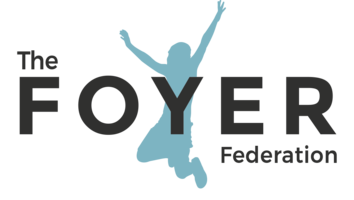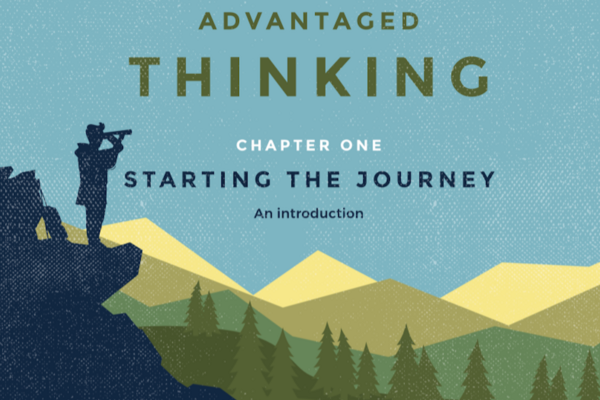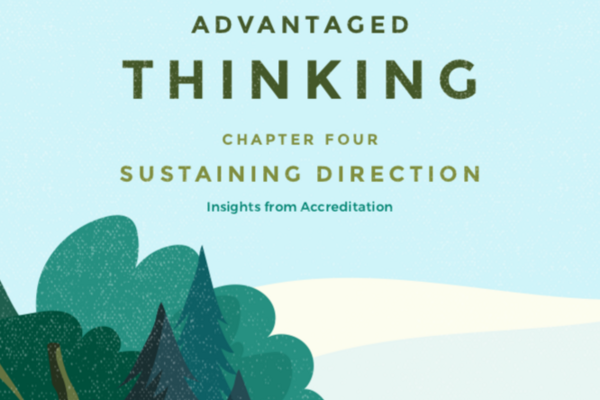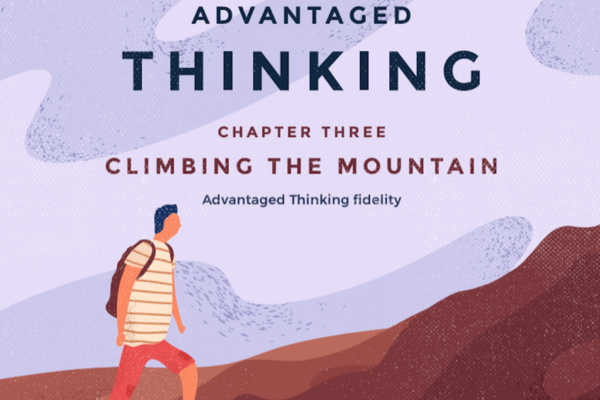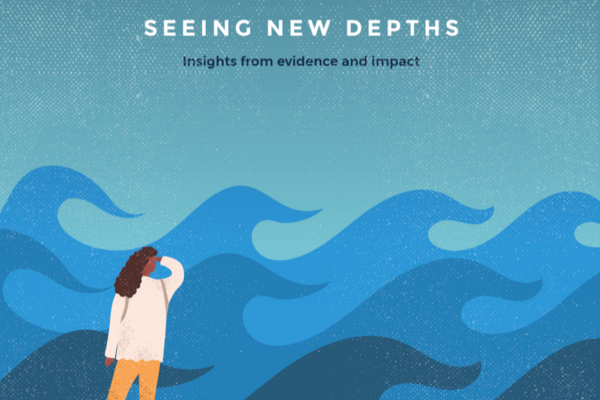“Before I had heard the words ‘Advantaged Thinking’, I knew what it was. It was the way I instinctively wanted to work with people. It was also the way that I preferred people to work with me.” – Kate Hitchcock, Paul Hamlyn Foundation
Advantaged Thinking is powerful, inspiring and highly effective. But what exactly is it? And how does one do it? Starting the Journey is an introductory chapter to our Advantaged Thinking journey series and will give you a secure grasp of Advantaged Thinking’s meaning and potential.
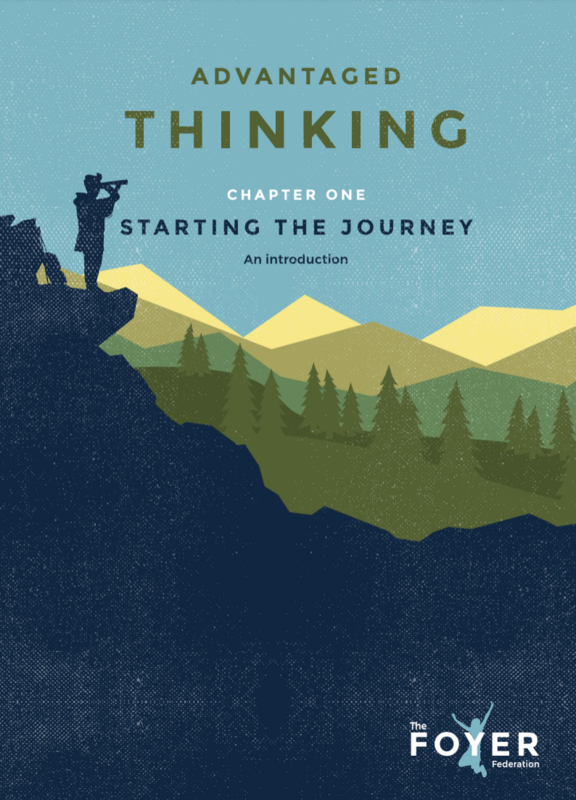
Where to start?
Advantaged Thinking is all about taking a positive view through positive action. Understanding ability, recognising qualities, promoting achievements, inspiring what is possible. Using the advantages we possess as humans to create and do new things. In Advantaged Thinking, our needs, deficits and weaknesses are given a different focus by being connected to our goals, assets and strengths. Advantaged Thinking believes that taking positive action allows us to deal more effectively with the negatives in our lives.
In its essence, Advantaged Thinking is a philosophy that promotes an accessible brand, evidence base and set of principles to achieve better outcomes for and with people experiencing disadvantage and injustice. It is a way of thinking and being – a way of seeing and doing – that consciously challenges negative expectations, blind spots and limitations within our social system. Engaging with Advantaged Thinking requires a commitment to undertake a development journey and being ready to embrace questions as well as taking action.
The first chapter of Adventures in Advantaged Thinking covers:
- Defining Advantaged vs Disadvantaged Thinking approaches
- Steps to prepare to be an Advantaged Thinker
- Advantaged Thinking as a distinct approach and how it dovetails with other strengths based approaches.
- The 7 Tests of Advantaged Thinking and why and how to apply them
- The impact of Advantaged Thinking over the last 10 years
- Applying Advantaged Thinking to other settings
Key Learnings:
- Advantaged Thinking is not a model; it is a way of thinking that guides practice.
- Advantaged Thinking is a flexible approach; it can and should be implemented in different ways and in different contexts.
- Advantaged Thinking is not simply a strengths-based approach; it combines individual with structural approaches to change.
- Advantaged Thinking is not only designed for young people; it has the potential to be used for all age groups.
Advantaged Thinking is not just relevant to the service delivery area of an organisation; it relies on a whole-of-organisation approach to the delivery of services, including staff skills and training, finance and information technology processes, research and policy, marketing and fundraising.
What are we doing?
We are sharing Advantaged Thinking with the world through our Adventures in Advantaged Thinking publication. This series of publications - is our present to you, to the sector, for our 30th Birthday. We want to see Advantaged Thinking embedded in the culture and systems of the youth sector to ensure young people who have experienced disadvantage get the best deal possible.
Our members are a beacon of Advantaged Thinking good practice. Across the network, staff, volunteers and young people are living the values and approach of Advantaged Thinking every day in their services and in their communities. Our Adventures in Advantaged Thinking publication includes examples of this.
We are continuing to build a community of Advantaged Thinkers and Doers from across the youth sector. On 13 May 2022 we are convening an Adventures in Advantaged Thinking event to discuss the publication, to share inspiration and good practice, and further the movement for Advantaged Thinking. Join us!
Inspiration from around the sector
Jane Slowey
Jane Slowey was our CEO, but she was much more than that. A pioneer and passionate advocate for Advantaged Thinking, she was appointed a Commander of the Order of the British Empire for services to ‘disadvantaged’ young people. When Jane died in 2017 she left behind her a legacy of inspiration and a call to action to ensure all young people can thrive.
Colin Falconer, Director at InspireChilli and former Director of Innovation at the Foyer Federation, wrote an article for A Better Way network where he reflected on his time working with Jane: “My mind returns to a reception at Foyles bookshop for a Foyer Federation poetry competition. It was summer 2006 and Jane was 18 months into her new CEO role. One of the poems that night expressed young people’s belief ‘to start living again, to have a good life’. Jane was instantly attracted to this as an idea: if we knew the ingredients for a good life, shouldn’t we ensure they formed part of the deal for everyone to access? Jane and I reflected that the origin of Foyer in France was rooted in the question of transition – how to build an alternative induction into the shifting life of adulthood. ‘Why don’t we do that?’ Jane suggested. It was our step into asset-based thinking: look towards a positive transition; begin with the opportunity.“
From Foyers
“Empowering a young person to take part in the Foyer Federation’s ‘Power Up’ programme presented them with opportunities to excel and overcome their challenges. They were not thinking about their inability to read or write. This created an improvement in their wellbeing and confidence and made tackling their support needs easier as a level of trust and respect had been created. The young person felt less embarrassed to ask or receive support. This person has now moved on and understands much more basic English and maths than before, having felt able to ask for support from staff members they know they can trust.”
Foyer Manager, Your Housing Group
Reflection questions
Q1. What does Advantaged Thinking mean to you?
Q2. What contexts would you like to apply Advantaged Thinking in?
Q3. How might you ensure that your organisation shares a passion for the possible?
